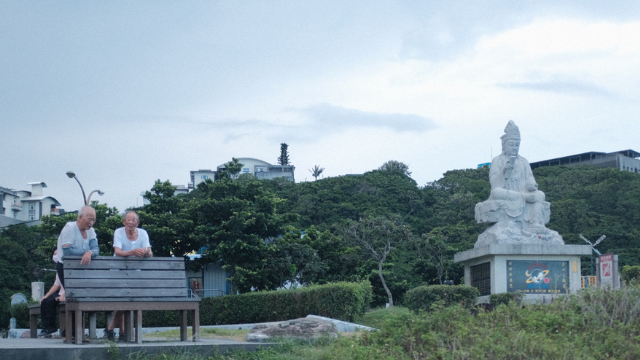Requirements
Application to Degree Programs
All prospective graduate students must apply for the Ph.D. program. The department does not offer terminal M.A. degrees; instead, an M.A. degree may be earned while progressing toward the Ph.D.
Academic Advisor and Mentoring Committee
A Primary Advisor will be selected by the Admissions Committee at the time the student is sent a letter from the department recommending admission. Candidates for admission and new students will then have a contact point for questions about the program.
The Primary Advisor initially assigned may be changed by the student at any time, in consultation with the current Primary Advisor and the Head Graduate Advisor.
Make-up of Deficiencies After Acceptance
The department only admits students into the Ph.D. program. Once admitted, students who have not completed an M.A. degree before beginning study at Berkeley will have to complete the requirements for the M.A. before proceeding to the Ph.D. program. After completion of the M.A. requirements (course-work and thesis), students will proceed to the Ph.D. portion of the program.
Students who have completed an M.A. degree in Chinese or Japanese or an equivalent discipline (Asian Studies, e.g.) prior to admission into the PhD will have their M.A. thesis evaluated by their primary advisor and the Head Graduate Advisor, and once approved, will count this milestone as complete. Because MA coursework requirements in EALC are an integral component of the Ph.D. program, however, students will still be expected to complete the relevant MA coursework requirements in their field of specialization, as well as the EALANG 200 proseminar, normally within their first two years in the program.
If you have an M.A. degree in a non-related discipline or from an institution outside of the US, your primary advisor must also evaluate your work/thesis and if it is determined to be satisfactory, it must be sent to the Department Chair for final approval. Once approved by the Chair, this milestone will be considered complete.
Chinese M.A.
Fluency in modern Chinese and a year of classical Chinese.
Chinese Ph.D.
Reading competence in a language other than Chinese relevant to the program, chosen in consultation with the Primary Advisor. In most cases, the second language will be three years of Japanese. In exceptional cases, this requirement may be satisfied by competence in another language, normally demonstrated by three years of language study at Berkeley or its equivalent. (Coursework must be taken for a letter-grade.) Native speakers of a language other than English do not automatically fulfill the language requirement; the language must be appropriate to advanced research in the program.
Japanese M.A.
Fluency in modern and classical Japanese. The classical Japanese requirement must be satisfied by completion of a classical Japanese seminar taken for four units for a letter grade. Students entering the program without having taken an introduction to classical Japanese elsewhere are expected to take J120 as well.
Japanese Ph.D.
Reading competence in a language other than Japanese relevant to the program, chosen in consultation with the Primary Advisor. Competence will normally be demonstrated by three years of language study at Berkeley or its equivalent. (Coursework must be taken for a letter-grade.) Native speakers of a language other than English do not automatically fulfill the language requirement; the language must be appropriate to advanced research in the program.
Number and Types of Courses Required for the M.A.
- EA 200, "Proseminar: Approaches to East Asian Studies" is required, normally in the first year.
- A minimum of three graduate seminars (four units each) in the student’s major language field (Chinese or Japanese) in the department will be required, for a letter grade. EA200 will not count toward the three required seminars. Students will have the option of taking additional seminars beyond the three required for the M.A. degree for two units, in which case no seminar paper is required. Each EALC seminar is structured with a 4 unit norm and 2 unit option.
Students who will need to acquire a second language from scratch to satisfy Ph.D. requirements (q.v.) will be advised to begin work on that language as early as possible.
M.A. Thesis
An M.A. thesis, usually based on a previous research paper and limited to 50 pages, is required. If the M.A. thesis involves a translation, the translation may be added as an appendix, which will not count toward the page limit.
An M.A. Thesis Committee of three will be appointed by the Primary Advisor and the Director of Graduate Studies in consultation with the student. University regulations call for a chair, an inside member, and an outside member (or the less preferable alternative of a second inside member). The Committee will comprehensively analyze comments on the thesis, work done to date, and then recommend or not recommend advancement to the Ph.D. program. A student may not advance to Ph.D. coursework until permission to advance has been received and the M.A. thesis has been signed. Acceptance of the thesis does not automatically entail permission to proceed to the Ph.D., which is a separate decision.
Advancement to Candidacy for the M.A. Degree
Masters Students are not automatically advanced to candidacy; they must submit a formal application for advancement to candidacy no later than the end of the fifth week of classes of the semester in which they expect to receive the degree.
Mechanism for Continuation or Termination at the M.A. level
A review of graduate students will take place in the middle and at the end of their first year and annually thereafter, and conveyed to the students in writing.
Academic good standing requires the maintenance of a 3.0 grade-point average in all upper division and graduate courses. A student with two or more Incompletes is academically ineligible to hold a student academic appointment.
At the end of the M.A. program, a determination will be reached regarding permission to advance to the Ph.D. program.
If all requirements for the M.A. are not completed by the end of the fourth semester, the student will be warned that failure to complete the requirements by the end of the following semester may result in academic probation, in which case, the student cannot hold academic appointments or receive graduate fellowships. A student who has been put on academic probation will not normally be eligible to proceed to the Ph.D. program until the condition is remedied.
Ph.D. Requirements
Two graduate seminars, four units each, for a letter grade in the student’s major language field (Chinese or Japanese) are required after completion of the M.A., as well as at least one graduate seminar outside the department in a cognate discipline, also for a letter grade. These three seminars must be taken before the Ph.D. Qualifying Examination (QE).
Ph.D. Qualifying Examination (QE)
Students must apply to take the Qualifying Examination no later than three weeks before the exam date since the Graduate Division needs this time to review the application. It is highly recommended that students submit this application as far in advance as possible.
In order to fulfill the eligibility requirements, students must:
- be registered for the semester in which the exam is taken, or, during winter or summer break, be registered in either the preceding or the following semester;
- have completed at least one semester of academic residence;
- have at least a B average in all work undertaken in graduate standing;
- have no more than two courses graded Incomplete;
- have completed the foreign language requirement, which is satisfied by the EALC language requirements.
The Qualifying Examination must be conducted in English.
Choosing the Qualifying Examination Committee
In consultation with his or her Primary Advisor, a Qualifying Examination Committee is nominated at least one semester before the student enters the Qualifying Examination study period. After consulting with the Primary Advisor, the Head Graduate Advisor signs off on the nomination of the Qualifying Examination Committee. The committee is appointed by the Dean of the Graduate Division, acting on behalf of the Graduate Council. The EALC members of the Qualifying Examination Committee reserve the right to accept or reject the proposed outside field.
Note that “affiliated faculty” (also known as “below the line” appointments) cannot direct Ph.D. dissertations. They are considered “outside members” of the department. This means that in the case of a qualifying examination or Ph.D. dissertation, they can only serve as “outside members.”
Number of Members on the Qualifying Examination Committee
- Three fields within the department, each with one examiner
- One outside field (defined as a field not covered by the department) with one examiner
Qualifying Examination
The following will be required:
- Three written examinations on fields within the department
- One written examination on a field outside the department
- Oral examination
The purpose of the Qualifying Examination is to insure that the student possesses adequate breadth and depth of preparation needed to conduct dissertation research and teach. The student will normally choose reading lists in consultation with examiners and then meet regularly to discuss those readings with them. The written examinations will be based on those readings and discussions. The oral examination that follows is not meant to be a separate field of enquiry; instead, it is designed to pursue issues raised in the written segments.
Normally there will be a nine-month period established for Qualifying Examination preparation (either fall and spring, spring and summer, or summer and fall). The student will set up meetings with his or her field examiners to take place during this period.
The written examinations will take place at the end of the Qualifying Examination study period. All four written examinations and the oral examination must be taken within a six-week period. Written exams will usually be given one week apart, with a minimum of 72 hours between each. Each examination is open book and take-home, to be returned the following day before 4:00 P.M. Each should be 10-12 double-spaced pages (2,000-2,500 words), with a maximum of 15 (3,000 words).
Each written examination will be read and judged by the examiner in charge of that field. Informal feedback on each written examination may be provided to the student immediately by the examiner. But the result of the written examinations will not be determined until all four are completed.
At the end of the written examination period, there will be a formal appraisal of the four examinations by the committee meeting as a group, and a decision will be made whether the student may proceed to the oral part of the examination or whether a remedial course of action is required.
The oral examination will take place one week after completion of the last written examination. It will last three hours and be attended by all four members of the Qualifying Examination Committee. It will be devoted to further investigation of issues raised in the written examinations.
In the case of a partial pass or failure, a remedial course of action will be required: partial reexamination, complete reexamination, or no recommendation to reexamine. All members of the committee must be present for any reexamination.
A determination will be made after the written components of the Qualifying Examination to assess whether the student is ready to proceed to the oral examination. If the student is judged unready, a remedial course of action will be determined before the student attempts the oral exam. A student may be allowed to take a second oral exam. However, if after the second attempt, the student is still judged unready, university regulations about program termination will apply. No third attempts to pass the qualifying examination are allowed.
Advancement to Candidacy for the Ph.D. Degree
After you have passed your Qualifying Exams, you are eligible to Advance to Doctoral Candidacy. To be Advanced to Candidacy, doctoral students must:
- have satisfied the foreign language requirement
- have passed the Qualifying Examination;
- have no more than two courses graded Incomplete;
- have a minimum 3.0 grade-point-average in all upper division and graduate work taken while in graduate standing;
- have fulfilled any additional program requirements, and
- have secured an appropriately configured dissertation committee (this must be entered prior to Advancing)
Dissertation Committee
After completion of Qualifying Exams, the student will select a Dissertation Committee. This committee may vary from the Examination Committee. The Dissertation Chair cannot be the same person who served as your QE Chair, however, the QE Chair may serve as a student’s Dissertation Co-Chair. If changes are made to this committee, the student will notify the Department Administrator in writing, and the Chair will need to approve any changes.
Members
Chair or Co-Chairs
Academic Senate Representative
Additional member(s)
- A Dissertation Committee requires a minimum of three members, two of whom must be EALC faculty
- Two Co-Chairs may replace one chair
- Additional EALC Members may be added to meet the requirement that at least half of the members be departmental faculty
- The Dissertation Chair cannot be the same person who served as your QE Chair. The QE Chair may serve as a student’s Dissertation Co-Chair
Dissertation Prospectus
The prospectus is a preliminary plan for the dissertation, accompanied by a bibliography. A document of approximately ten double-spaced pages (excluding the bibliography), it must be submitted to the primary advisor for approval by the end of the semester following the successful completion of the Qualifying Examination. All continued funding and teaching assignments require that the prospectus has been approved.
Dissertation Filing
After you have written and formatted your dissertation, and obtained your signatures, you are ready to file it with Graduate Division. You must upload your electronic dissertation before 5pm on the last day of the term (one week after Instruction ends).
https://grad.berkeley.edu/academic-progress/dissertation/#procedure-for-filing-your-dissertation
Normative Time
Effective 2010, the student has ten semesters of Normative Time after entering the program to complete the Qualifying Examinations and submit a petition to Advance to Candidacy to be eligible for the Doctoral Completion Fellowship (DCF). If the student successfully advances before or during the tenth semester, he or she is awarded a Normative Time grant for one year of support. Eligible students may use the fellowship at any time after advancement to candidacy, through the end of the year Normative Time to Degree (NTD) plus one year- the eighth year.
http://grad.berkeley.edu/policy/degrees-policy/#f31-doctoral-completion-fellowship-dcf






